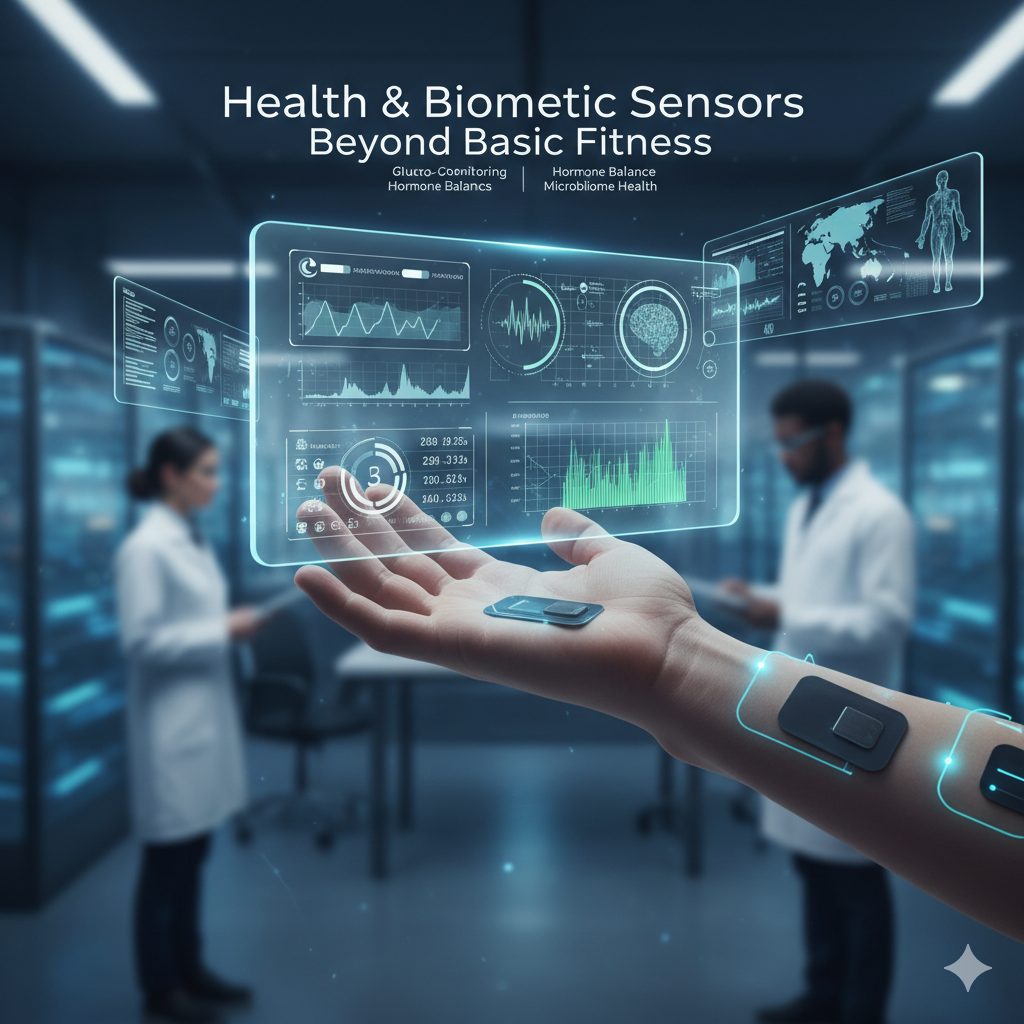🏃♀️ From Fitness Trackers to Health Companions
Wearables have come a long way from just counting steps or calories. Modern devices like smartwatches and rings now track much more — including your heart, sleep, and stress. These new-age wearables act like mini health assistants that help you understand what’s happening inside your body, not just how many steps you take.
💡 What Are Biometric Sensors?
Biometric sensors are special tools built inside wearables that can read signals from your body.
They measure important health data such as:
- Heart rate and blood oxygen levels
- Sleep patterns and breathing rate
- Body temperature and stress
- Blood pressure and ECG (heart rhythm)
Some new wearables are even trying to track blood sugar and hydration levels without using needles — something that was only possible in hospitals before.
⚙️ How These Sensors Work
These sensors use light, tiny electrical signals, and smart software to study your body.
For example:
- Light sensors measure how blood moves through your skin.
- Heart sensors (ECG) can warn you about irregular heartbeats.
- Skin sensors detect temperature or sweat to know when you’re stressed.
All this data is then processed using AI (Artificial Intelligence) to give you real-time feedback about your health.
🌿 Why These Sensors Matter
Biometric wearables are not just for fitness lovers — they are for everyone who wants to stay healthy.
Here’s why they’re useful:
- 🩹 Early Health Warnings: They can detect health problems early, like high heart rate or sleep issues.
- ⚖️ Personalized Insights: They show how your body reacts to food, sleep, or stress.
- 💬 Better Doctor Reports: You can share accurate data with your doctor for better treatment.
- ⏱️ 24/7 Monitoring: They keep track of your health all day, every day.
🔒 The Importance of Data Privacy
Because these devices collect sensitive health information, privacy and safety are very important.
Users should choose brands that protect data with encryption and clear privacy rules.
Before connecting your wearable to an app, check if it follows data protection laws like GDPR or HIPAA.
🚀 What’s Coming Next
In the future, wearables will get even smarter.
- They might track hydration, stress hormones, and even early signs of illness.
- AI will make them more accurate and predictive — warning users before something goes wrong.
- Companies like Apple, Samsung, and Oura are already leading the way with new health-focused gadgets.
🧭 Final Thoughts
Wearables are no longer just fitness accessories — they are becoming personal health partners.
With advanced sensors and AI, they can help us understand our bodies better, detect problems early, and lead a healthier life.
The next generation of wearables is about care, not just counting.
